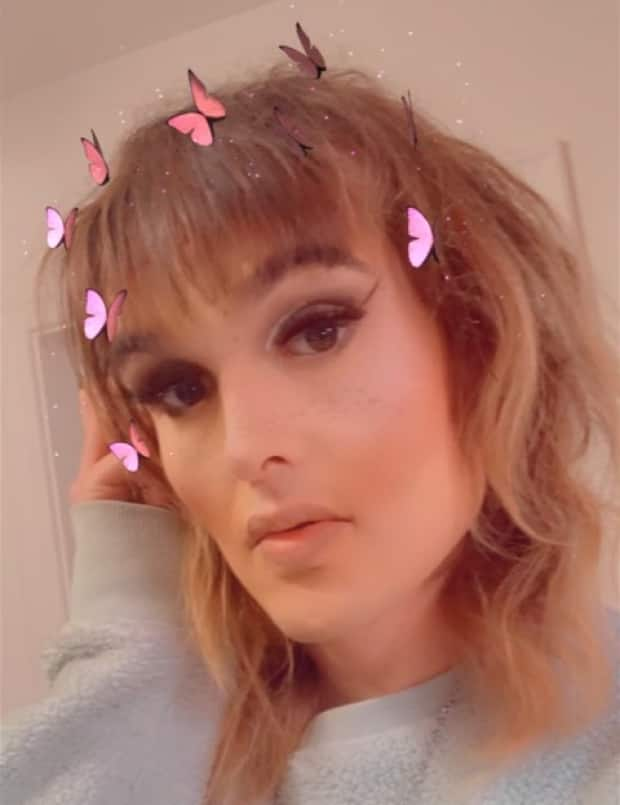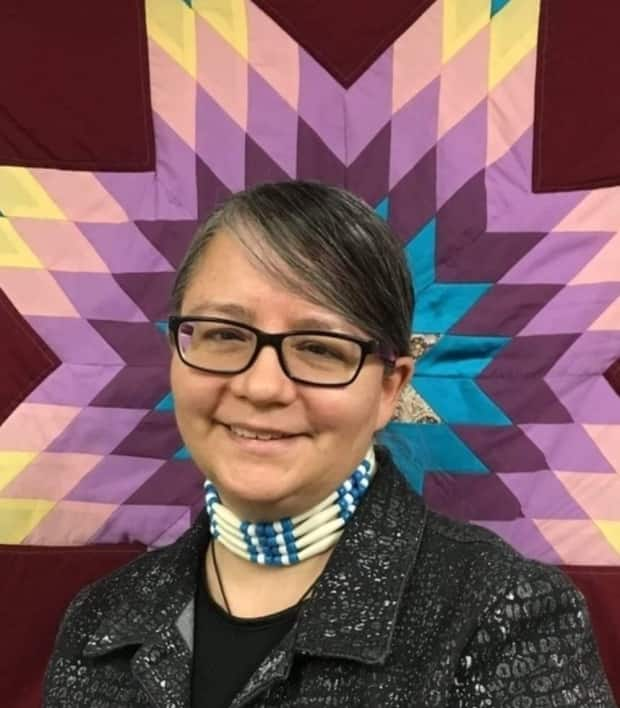To feel seen and heard: why gender-neutral pronouns are important

They/them and other gender-neutral pronouns have become increasingly common for people who don't fit the gender binary.
For Pride Month, CBC Saskatchewan spoke to three people who use they/them pronouns. Jennifer Lenny, a two-spirit person from Prince Albert, Sask., Saskatoon's Muze Dysart, a non-binary transgender woman, and D.A. Dirks from Regina, who identifies as a non-binary transgender person, told CBC how affirming it is when people use their correct pronouns — and how invalidating it is when that doesn't happen.
Responses have been edited for length/clarity.
When did you first realize he/him or she/her didn't fit your identity?
Jennifer Lenny: "Back in 2017, I was part of a planning committee for the first two-spirit powwow in Saskatchewan. Part of our introductions was to say pronouns and it really got me thinking. I started to really evaluate more of, 'What does it mean to me?' She/her, for me, was more of a binary thinking. It didn't acknowledge all of me."
Muze Dysart: "My mom, she didn't really care about gender stuff. So I feel like my whole life has always been on a very non-binary lens. So even though I didn't know about dating and pronouns, I felt like I was able to live the life of someone who had they/them pronouns long before knowing what they meant."

D.A. Dirks: "From a very young age — I grew up in the 70s and 80s — I never felt like a typical girl and then woman. So then the only words that people called me, whether I wanted to be called that or not, were words like dyke and butch. We didn't have very many words. In the late 2000s/2010s, there was more discussion about a different use of pronouns. So it's been a 10-year kind of uphill battle."
What does it feel like when someone puts in the work and gets your pronouns right?
Lenny: "It's so affirming. It's so validating. It feels like I matter. It feels like I'm being seen. For those who will even come back and say, 'Hey, I realized I said she' or 'I realized I said ladies,' ... and they say that they're sorry about that, it makes me feel that I matter."

Dirks: "You feel seen and heard, right? You feel like people are really listening to you and listening to your perspective. So it feels really good to be acknowledged and recognized."
Dysart: "It feels awesome. It's just, like, I feel seen, I feel heard. I just feel happy about it. That's the best feeling in the whole world."
What's it like for you when people don't use proper pronouns?
Lenny: "It's like a denial of who they are and that can be really difficult. Because it's like saying to the person that their identity doesn't matter and so it's an erasure. That's the power of those words, it may seem small to someone who doesn't understand how important that is, but it's deeply important to someone's identity and mental health."
Dirks: "You have to give grace to people who are trying and messing up. It's pretty miserable when you encounter people who just say, 'It's my right to disrespect you and not listen to what it is that you've asked me to do.'"
Dysart: "It's discouraging. The first time I will tell them and they'll normally correct themselves. And my best friend told me if they mess up the second time, you are allowed to go off."
What's your message for people who aren't used to they/them pronouns about why it's important?
Dirks: "It's like when you introduce yourself to a new person and they immediately forget your name. If your name that you were given by your parents is William, but you ask people to call you Bill, but they insist on calling you William, it makes you feel not great. It's similar to saying, 'Please use they/them pronouns because they describe my gender identity better than she or he.' And so if you could practise that and do that, that would show and signal to me that you heard me and that you're willing to make that effort to respect my ask of you."

Lenny: "If their identity is she/her and if someone called them sir, just think about that as a way to put yourself in the shoes of someone else. You need to think about how those words matter and the strength of those words, and it's OK to make a mistake, because people are learning. But once you've been told, remember that you can only fall back on 'I'm just learning' for so long."
What's your message to youth reading this and exploring their own identity?
Lenny: "Don't wait 'til you're 49 — reach out to people that you know are safe and comfortable and do it now. Don't journey the road that I did a lot of addictions and suicidal thoughts and mental health issues and not reaching out for that help and thinking that you're alone because you're not alone. Be proud of who you are. Hold your head up high and stand in your truth."
Dysart: "Find a local trans support group. That's what I did … Now here I am living as a beautiful non-binary trans woman. It might take your parents, your family, some people some time to get to go with your new pronouns or your new name, too. But once they get there, it'll all be worth it."
Dirks: "As younger folks might be exploring their own gender identity, the thing that I've discovered for myself is that it's a journey. There isn't an end point. It's really about letting yourself change your identity, explore the fluidity of your identity. Don't let older people in particular push you to be a certain way."

 Yahoo Movies
Yahoo Movies 